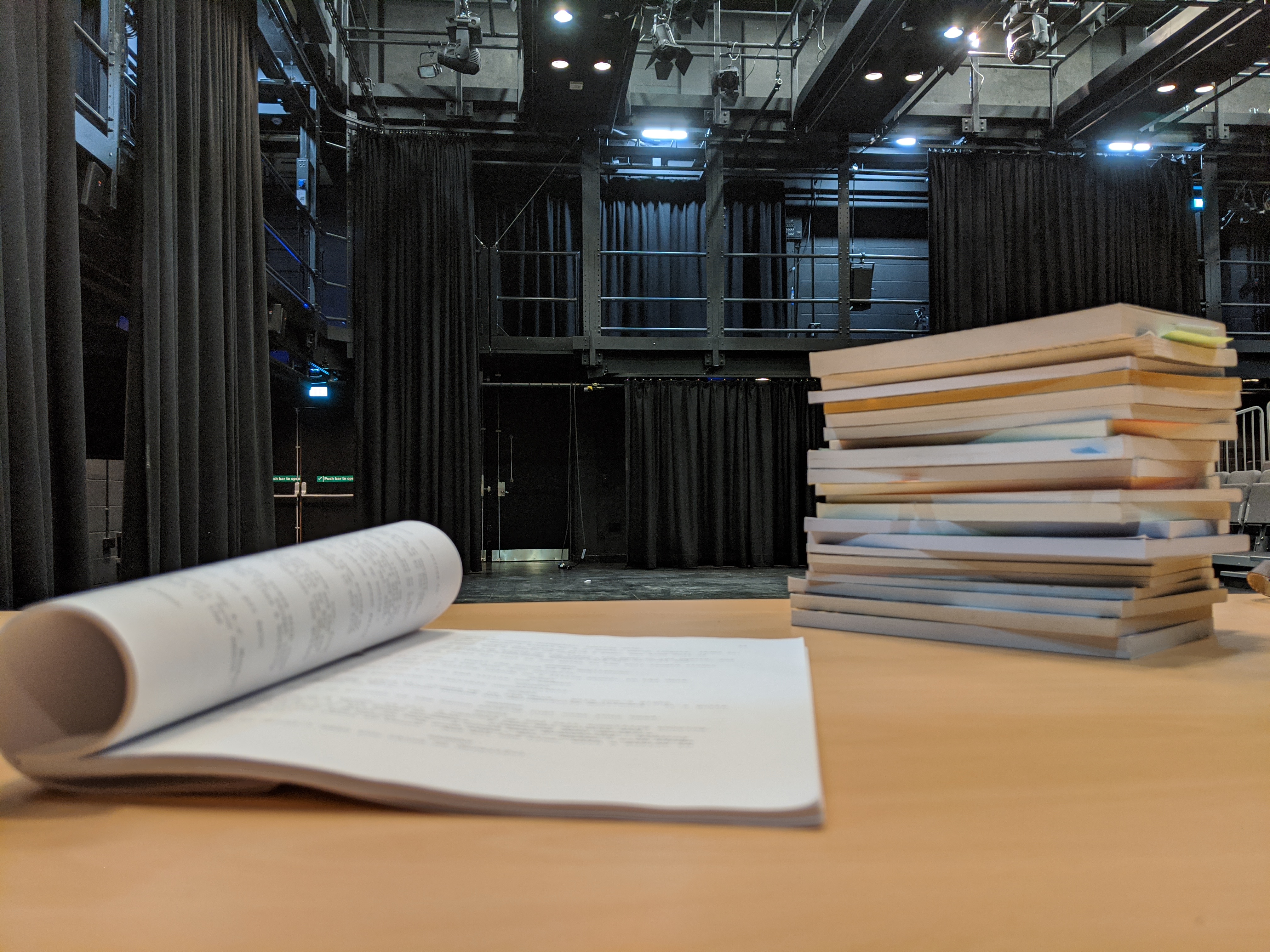
Written by guest blogger Benjamin Poore.
I’d set out to write an article on a contemporary play that fascinated me, Ella Hickson’s Oil (which premiered at the Almeida Theatre, London, in 2016). Hickson is, I believe, one of Britain’s most exciting and important contemporary playwrights. I wanted to explore her use of epic, episodic form and its relationship to Brecht’s Mother Courage and her Children (1939) – and in what ways this choice of theatrical form could be read as having a feminist dimension. However, as I contemplated this connection, the controversy over Hickson’s next play, The Writer (Almeida Theatre, 2018) erupted. The noticeably gendered critical reception of Oil – implying that it wasn’t a ‘proper’ play and had been somehow either over-written or under-written – had moved centre-stage in The Writer and had become part of the latter play’s own rhetorical strategy.
This set me thinking about the playwright as a public figure, and how the playwright is perceived in relation to their work. Bernard Shaw sprang to mind as a playwright whose works I’d taught for many years but about whom I’d found it difficult to write in a research setting: the Shavian public persona seemed to overshadow his plays, placing everything in inverted commas, like an irritating man who holds out his hand in a gesture of hearty greeting and then, as you reach out to shake his hand, pulls it away and thumbs his nose at you instead. Christopher Wixson’s recent book Bernard Shaw and Modern Advertising: Prophet Motives (Palgrave, 2018) explores Shaw’s public persona of “G.B.S.” and its application to any number of commercial ventures as Shaw sought throughout his career to have his contrarian cake and eat it. Indeed, I thought of Bernard Shaw when I read recently in Deborah Frances-White’s book The Guilty Feminist, where she writes of high-profile male comedians who trade on social embarrassment: “I am rather in some wonderment at men’s ability to make life so unnecessarily difficult for others in order that their own self-proclaimed ‘genius’ can flourish”.
Sarah Grochala’s brilliant book The Contemporary Political Play put its finger on something else about Shaw’s playwriting that I had not been able to articulate myself, and I found terms like ‘serious drama’ and ‘solid modernity’ extremely helpful in trying to pin down the ways in which Shaw’s dramaturgy was placed in the service of his political, social and philosophical agendas. In rewriting the article, Brecht as a point of comparison fell away, and instead I brought in Caryl Churchill, who built on Brechtian techniques but whom Hickson had explicitly cited as an influence.
Since I wrote the essay for Modern Drama, Hannah Greenstreet’s article ‘Anger, Ambivalence and Ella Hickson’s The Writer (2018)’ has also highlighted the ways that The Writer departs from realist forms of dramaturgy; it “makes space for anger, which rips the rational debate out of shape”. I’m fascinated by Greenstreet’s reading of The Writer as a play that invites us to identify with the character of The Writer (and by implication, the writer of The Writer, Hickson) but then denies that identification and instead “valorises ambivalence”.
In recent months Hickson has also returned to a consideration of women, history and power with her play Swive [Elizabeth] at Shakespeare’s Globe in London. Among other things, in exploring the life and reign of Queen Elizabeth I, the play is interested in women’s agency in writing (and rewriting) their own history. And yet, when the invitation to read the play as autobiographical is much less explicit than in The Writer, is it fair to read Hickson’s presence into Swive in the same way? Or is that interpretation a regression to the tendency to read art (especially art made by women) biographically rather than as a conscious creative endeavour? Perhaps these are questions for future work on Hickson to take up.
Benjamin Poore is Senior Lecturer (Associate Professor) in Theatre at the University of York, UK. His books include Heritage, Nostalgia and Modern British Theatre: Staging the Victorians, Theatre & Empire, and Sherlock Holmes from Screen to Stage: Post-Millennial Adaptations in British Theatre. His interests include revival, adaptation, and dramaturgy, and the uses of historical material in contemporary playwriting. He is currently working on a monograph on the contemporary history play, alternative timelines and counternarratives.
His latest article in Modern Drama entitled “’You Can’t Be Here’: The Playwriting Dialectic in Ella Hickson’s Oil” is free to read for a limited time here.
The UTP Journals blog features guest posts from our authors. The opinions expressed in these posts may not necessarily represent those of UTP Journals and their clients.
Comments on this entry are closed.